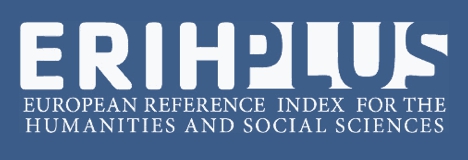Casa do caminho in Londrina, Paraná, and the formation of educational in non-formal space of environmental education of 2016-2017
Abstract
The objective of this study was to characterize and discuss the environmental education work carried out at Casa do Caminho (city of Londrina, PR) in terms of action strategies based on concepts foreseen in the Política Nacional dos Resíduos Sólidos - PNRS / 2010, with students who attended the Project of Coexistence and Strengthening of Links of the philanthropic institution between 2016-2017. The study was carried out based on bibliographical research with a qualitative approach and information gathering with Casa do Caminho. The development of environmental education educational practices was verified in Casa do Caminho until 2017, in an integrative vision with the target public, with emphasis on the behavioral and also critical perspective, with a practice based on dialogue, listening and speaking, allowing exchange knowledge among the agents involved.
References
BRASIL. Lei Federal no 9.795, de 27 de abril de 1999. Dispõe sobre a educação ambiental, institui a Política Nacional de Educação Ambiental e dá outras providências. Diário oficial da União, Brasília, 28 abr. 1999. Disponível em:
CARVALHO, Isabel Cristina Moura. Educação ambiental: a formação do sujeito ecológico. São Paulo: Cortez, 2004.
CÉZAR-MATOS, Arlinda. Valorando a Vida/Valorando la Vida. San Francisco
(CA): USA, 2001.
COLLEY, Helen; HODKINSON, Phil; MALCOLM, Janice. Non-formal learning: mapping the conceptual terrain. A consultation report. Leeds: University of Leeds Lifelong Learning Institute, 2002.
DURNING, Alan. How much is enough? The consumer society and the future of the Earth. New York, WW Norton & Co., 1992.
FIGUEIREDO, Paulo Jorge Moraes. A Sociedade do lixo: os resíduos, a questão energética e a crise ambiental. São Paulo: Editora UNIMEP. 1995.
FREIRE, Paulo. Pedagogia da autonomia: Saberes necessários a prática educativa. São Paulo: Paz e Terra, 1996.
KISIL, Marcos. Organização Social e Desenvolvimento Sustentável: projetos de base
comunitária. In: IOSCHPE, Evelyn Berg (Org.). 3º setor: desenvolvimento social sustentado.
2a ed. São Paulo/ Rio de Janeiro: Paz e Terra, 2000.
LAYARGUES, Philippe. O cinismo da reciclagem: o significado ideológico da reciclagem da lata de alumínio e suas implicações para a educação ambiental. In: LOUREIRO, Carlos Frederico B.; LAYARGUES, Philippe; CASTRO, R. (Orgs.). Educação ambiental: repensando o espaço da cidadania. São Paulo: Cortez, 2002, p. 179-220.
MASSI, C. G. Educação Ambiental Crítica como Instrumento Na Política Nacional de
Resíduos Sólidos: Prática Pedagógica na Instituição Filantrópica Casa do Caminho de
Londrina/PR. 196 f. 2018. Dissertação (Mestrado em Geografia), Universidade Estadual de Londrina, Londrina, 2018.
MEDINA. Nana Minnini; CÉZAR-MATOS. Formação de multiplicadores em educação ambiental: método de participação-ação para construção do conhecimento. In: VESEN, Gina Rizpah; FREITAS, Luciana; JACOBI, Pedro Roberto. Política nacional de resíduos sólidos: implementação e monitoramento de resíduos urbanos. São Paulo: IEE USP: OPNRS, 2017.
SANTOS, Milton. Por uma outra globalização: do pensamento único à consciência universal. 3. ed. Rio de Janeiro: Record, 2000.
SEWELL, G. H. Administração e controle da qualidade ambiental. São Paulo, USP, 1978.
TAMAIO. Irineu. A política Pública de Educação Ambiental. Educação ambiental no Brasil. 2008. p. 21-22.
TREIN, Eunice. A educação ambiental numa perspectiva crítica. In: Educação Ambiental no Brasil. (salto para o futuro), Ano XVIII boletim 01, 2008. (p. 41 – 5).
WCCI 16TH WORLD CONFERENCE ON EDUCATION. Integrating Education for a Lasting Culture of Peace and Care of Planet Earth. August 17-24, 2014. San Diego, CA.
UNITED NATIONS EDUCATIONAL SCIENTIFIC AND CULTURAL ORGANIZATION. The UNESCO-UNEP Environmental Education Programme. Paris, December 1975. Disponível em:

This work is licensed under a Creative Commons Attribution-NonCommercial 4.0 International License.
Policy Proposal for Free Access Journals
Authors who publish in this journal agree to the following terms:
a. Authors retain the copyright and grant the journal the right of first publication, with the work simultaneously licensed under the Creative Commons Attribution License which allows the sharing of the work with acknowledgment of the authorship of the work and initial publication in this journal.
b. Authors are authorized to take additional contracts separately, for non-exclusive distribution of the version of the work published in this journal (eg publish in institutional repository or as a book chapter), with acknowledgment of authorship and initial publication in this journal.
c. Authors are allowed and encouraged to publish and distribute their work online (eg in institutional repositories or on their personal page) at any point before or during the editorial process, as this can generate productive changes, as well as increase the impact and The citation of published work (See The Effect of Free Access).





















